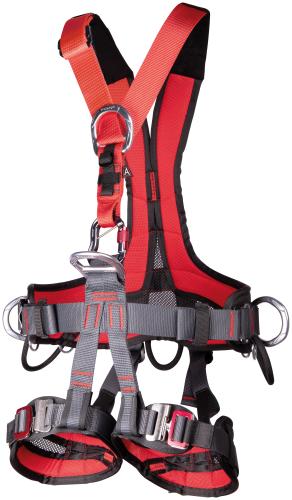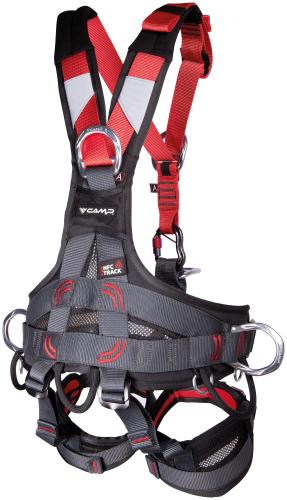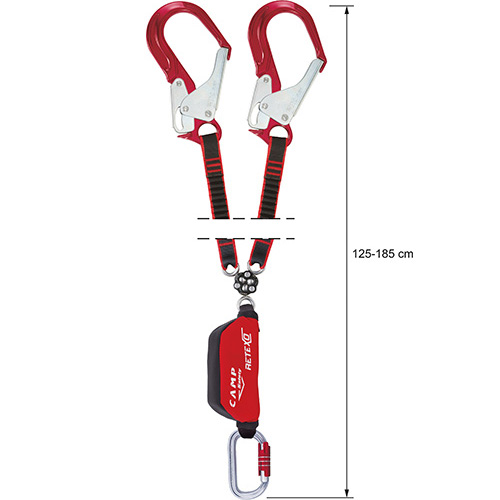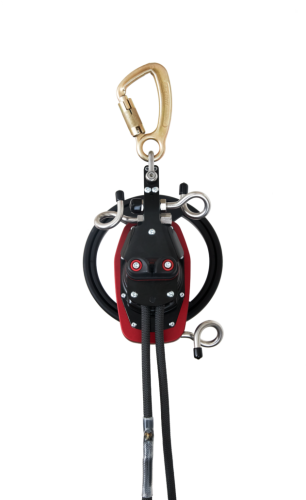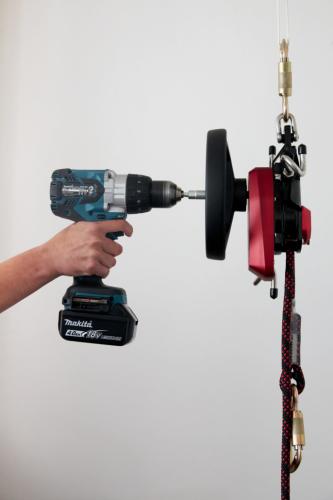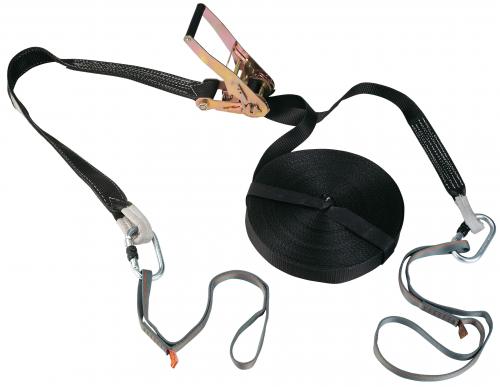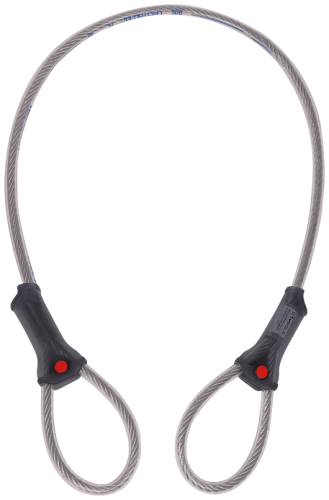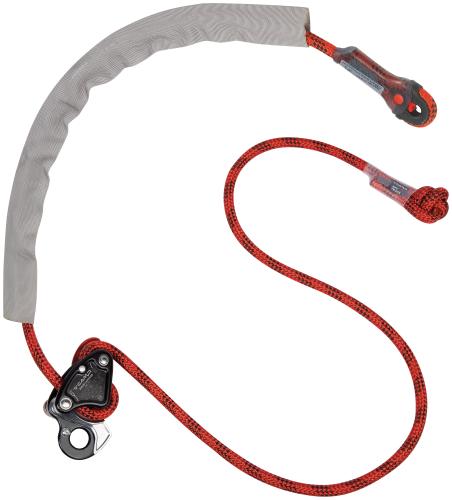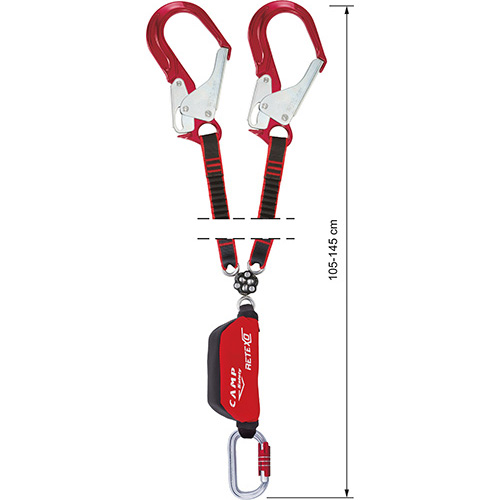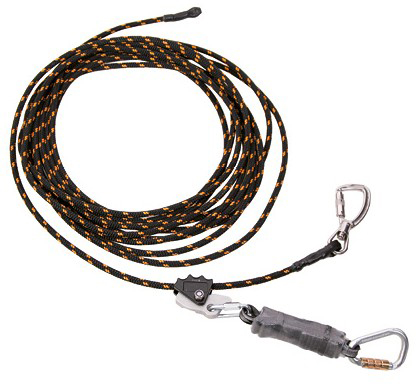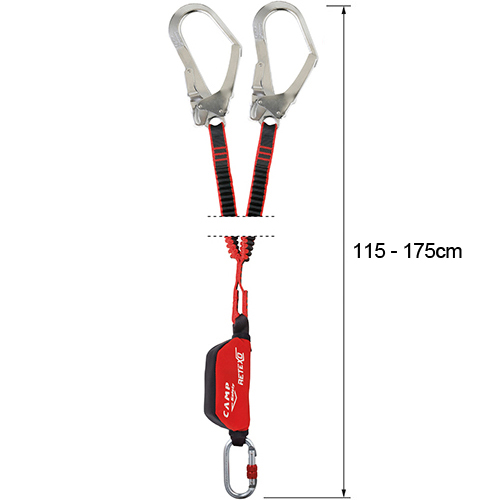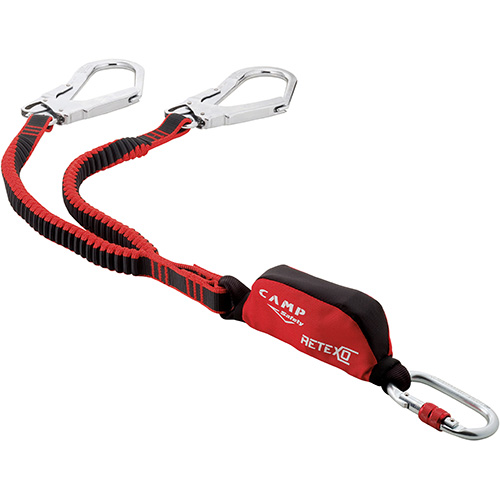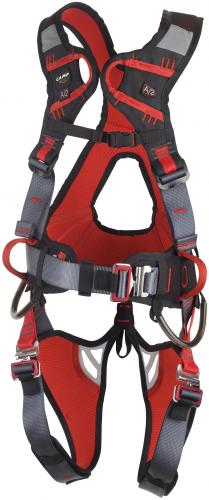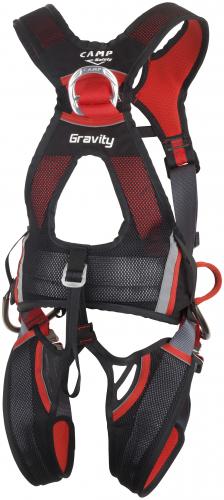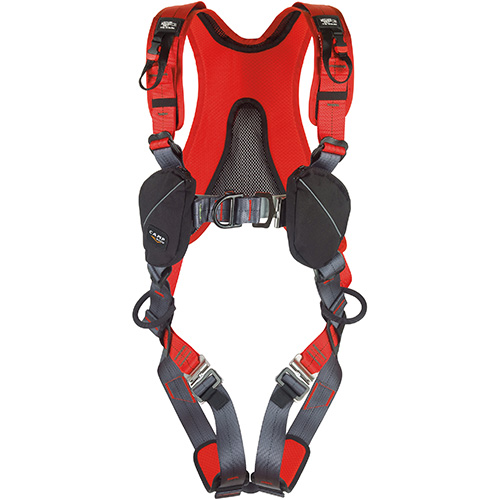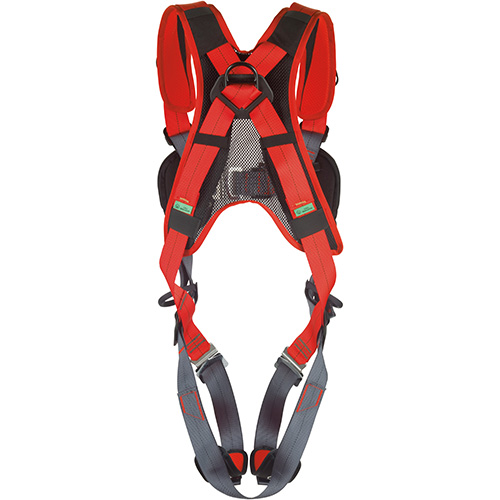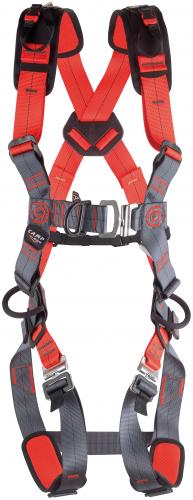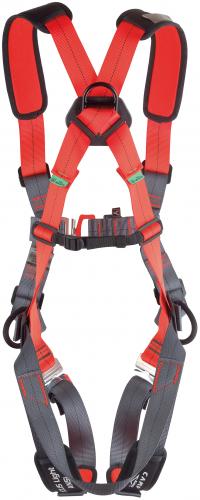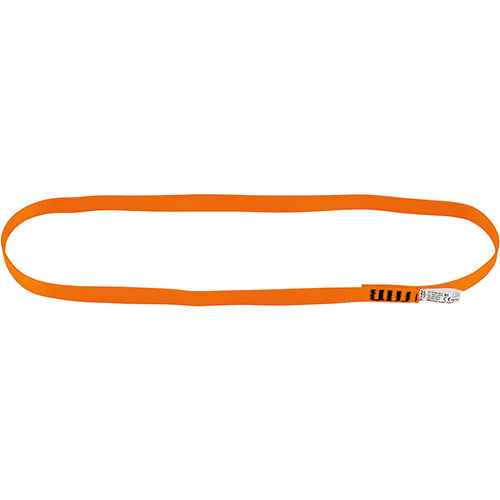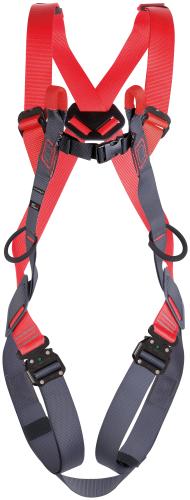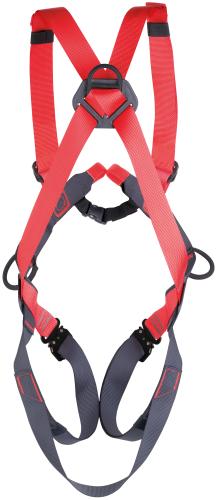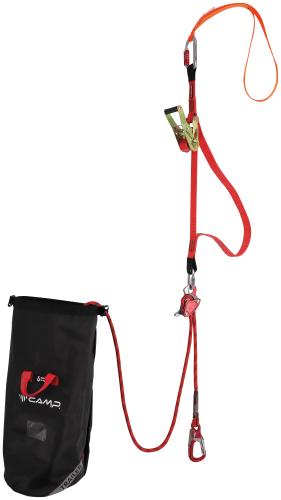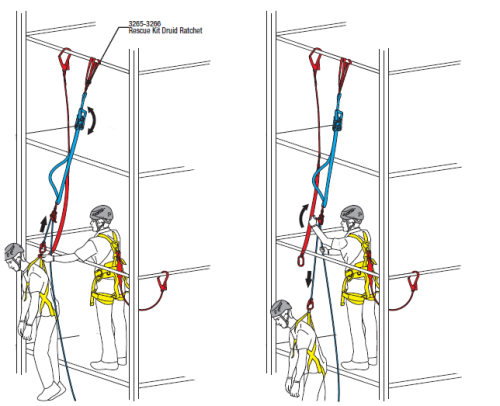- Total 0,00 SEK
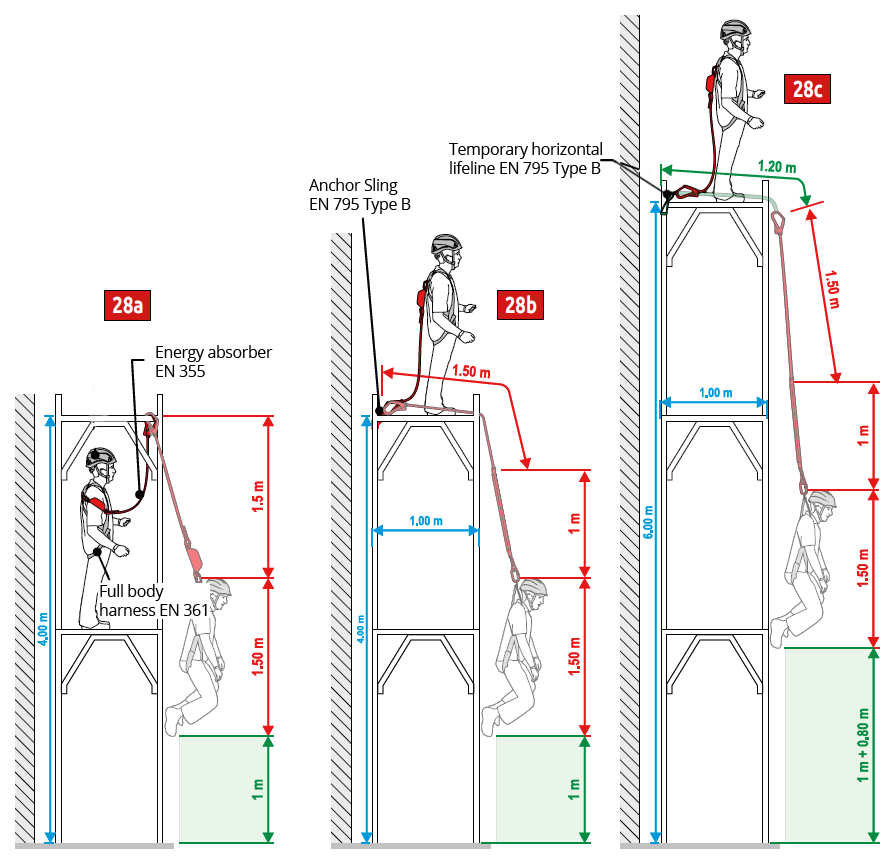
CONSTRUCTION AND SCAFFOLDING
In construction the risk of falling during work at heights can be very high. During scaffolding assembly and disassembly specifically, the operator must protect himself by means of appropriate personal protection equipment against the risk of falling when the anchoring point is below or level with their feet. Scaffolding operations and construction in general often have treading surfaces at limited heights with respect to the ground or any hazards below. Therefore, these operations imply problems of reduced clearance distances which, in the event of a fall, could cause contact between the operator and the ground or the obstacles below, before the fall arrest system can arrest the fall correctly. C.A.M.P. offers two solutions to solve the problem of limited clearance distance.
Fig.28 - Retexo lanyards with length up to 1.5 m are suitable for use on lower levels of scaffolding (<4 m) where normal energy absorbers do not guarantee absolute safety. We recommend the use of a double leg lanyard for additional safety.
- Fig.28a Climb to the top of the first level and attach the lanyard to the structure of the second level, in this case the fall factor is close to zero so the extension of the absorber in the event of a fall will also be zero.
- Fig.28b Climb to the top of the second level and attach the lanyard to the internal side of the floor using an anchor webbing. The limited extension of the absorber (max 100 cm) will stop any falls before the user hits the ground.
- Fig.28c Once the second level is constructed, a temporary lifeline can be fixed on the third floor to allow workers to move more freely during work. At this height, the danger of a ground fall is no longer a concern if the worker remains attached to the properly installed temporary lifeline. Be sure to consider the flexion of the lifeline ref.1095 (approximately 120 cm for a span of 5 m).
The Cobra 2 is a retractable fall arrester certified according to EN 360 for use under working conditions with a fall factor 2. In these situations, the Cobra 2 retracts the lanyard into the device in the event of a fall to decrease considerably the length of the fall, thereby decreasing the requisite clearance distance to prevent the worker from hitting an obstruction or the ground in the event of a fall. In these situations, the use of a normal lanyard with an energy absorber requires a far greater clearance distance and consequently does not allow for safe work at limited heights. The 2 m length of the lanyard (when assembled with a connector fastened with a quick link and the retracting function allow optimal user mobility while still protecting them from the dangers of working with limited clearance heights.


